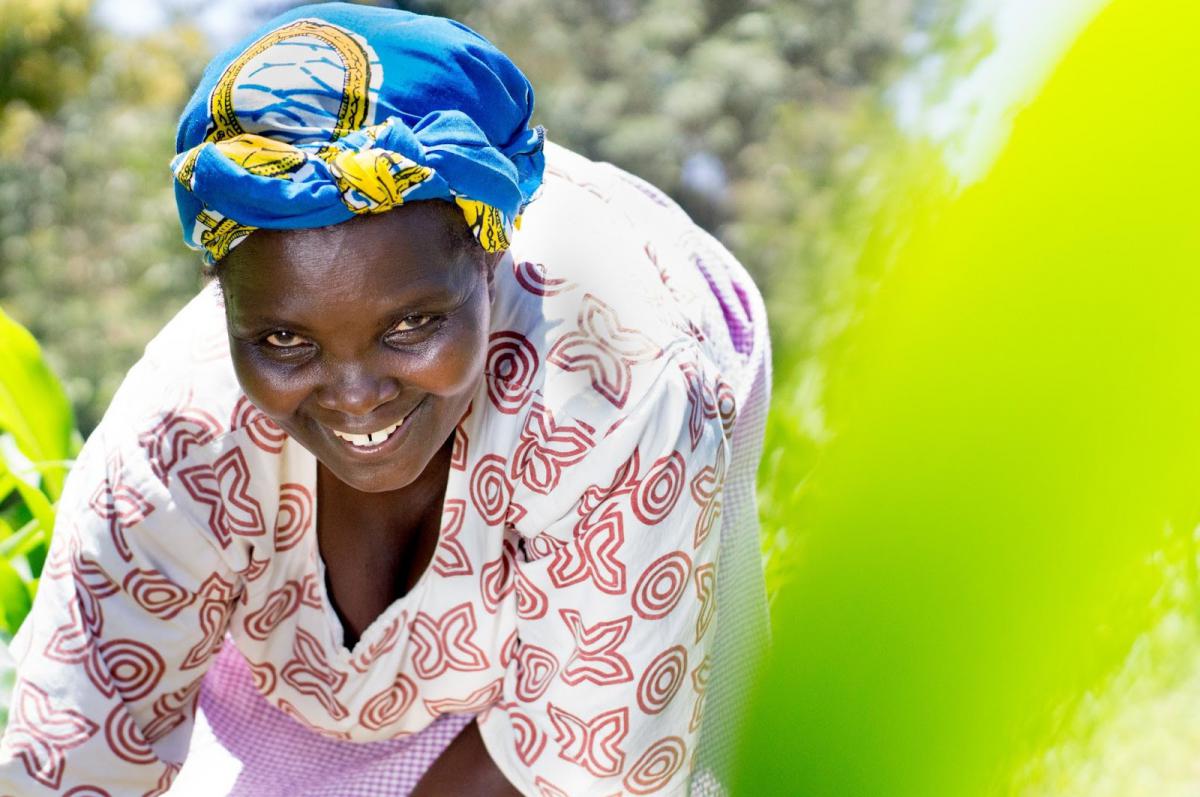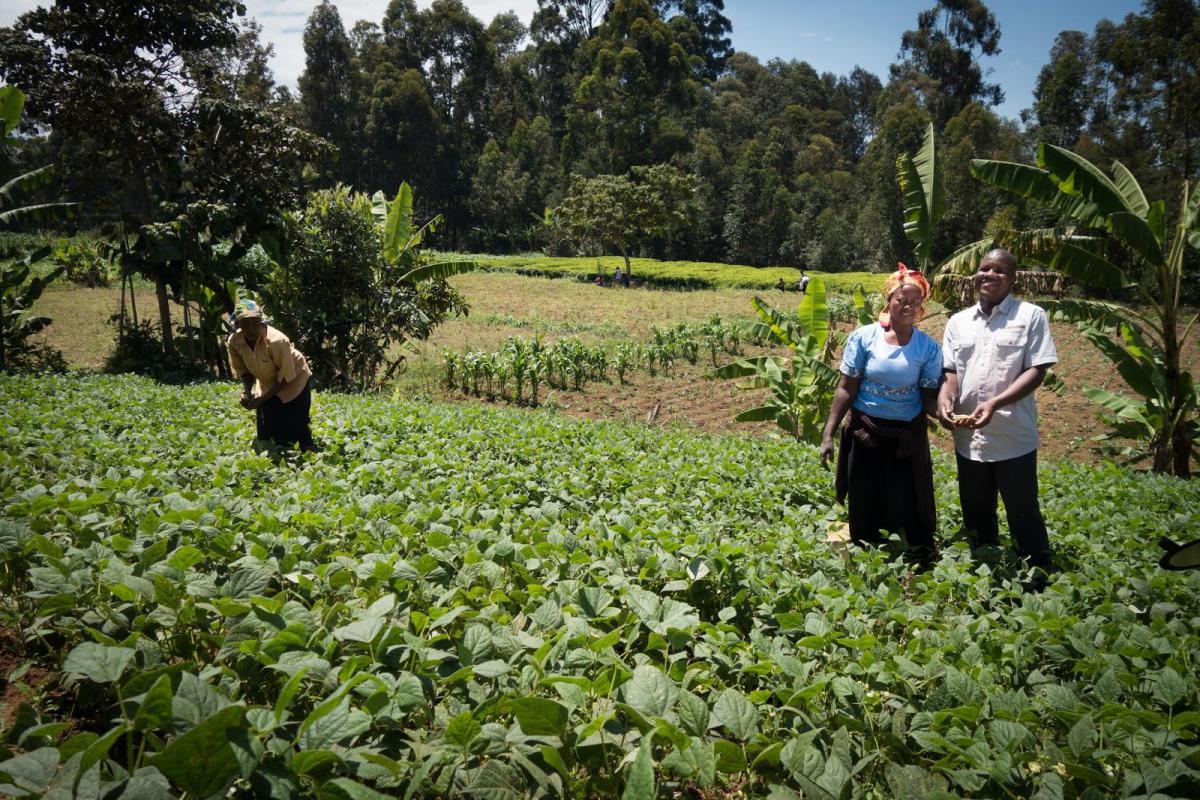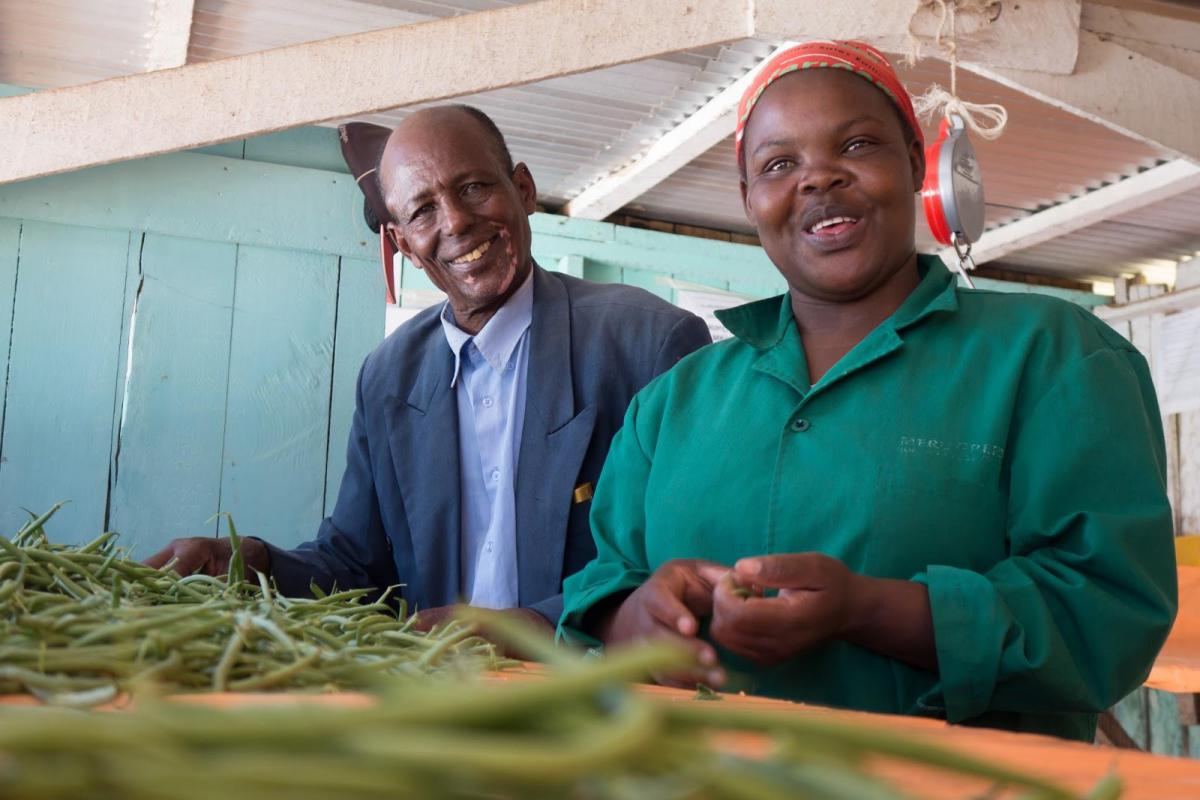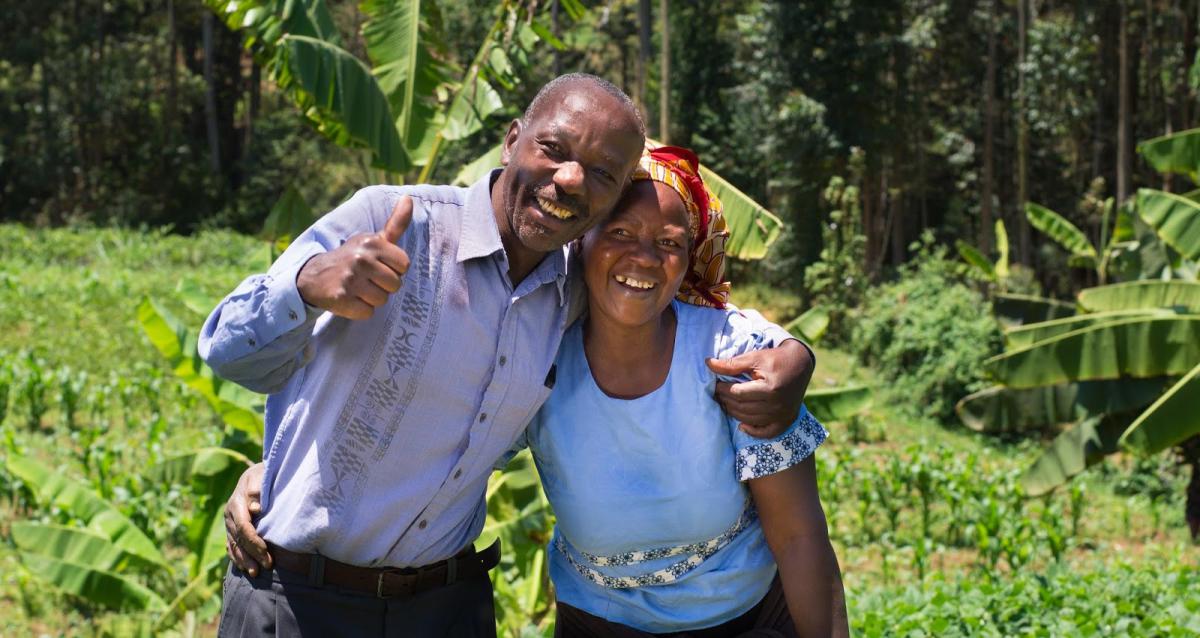At the same time, supermarkets are importing groceries that could have been produced locally – with the right support. That is one of the reasons Solidaridad started the “Food for All” project: to enable smaller farms to profit from the increasing demand for high-quality fruit and vegetables.

Elizabeth on her farm
Elizabeth Ngiri is one of these smaller farmers. She has almost an acre of land on which she produces mostly french beans, but also some maize, pigeon beans, and sweet potatoes. She also keeps two cows and some pigs. Her land looks green and well kept and her plants are full of beans. Elizabeth explains the advantages of growing French beans: “Unlike many other crops, you can harvest them all year round, which allows me to have a more or less steady income”.
She's been growing beans for quite some time now, but only recently has her income from the beans also been growing. After she completed training from the field extensionists linked to the Food for All project, Elizabeth received support in getting the right inputs from Meru Greens, a processing company which is exporting french beans and is always willing to buy her beans at a decent price. This extra income can have a significant impact on her future because it is the difference between sending her kids to college or not. “My older kids haven’t had these opportunities, but my youngest is now in college. All the extra money goes to the school fees, but it’s the best investment I can make: the future of my children”.
Elizabeth lives in Meru, along the slopes of the majestic Mount Kenya. Contrary to Nairobi, this area is mostly rural. Like Elizabeth, all her neighbours have a similar amount of land – often less than half a hectare. Seeing how Elizabeth can earn a steady and decent income, most of them have also switched to green beans as an alternative cash crop.
Food security facing challenges
A few years ago, most of these farmers were growing khat, plant grown for use as a stimulant for centuries in the Horn of Africa and the Arabian Peninsula. Chewing khat predates the use of coffee and is used in a similar social context. But with the World Health Organization classifying it as a drug of abuse, countries have increasingly banned the import of it. Especially since the EU decided to ban the crop, revenues for the farmers in Meru – one of the main khat producing areas in the world – dropped significantly.
Through the Food for All programme, these farmers have now found a reliable connection to the market. However, in other areas of Kenya, specifically the upper areas, farmers are still struggling. While in Nairobi food security rates have dropped and stunting has become rare, in the upper areas of Kenya, the population is still facing an increasing lack of food security.
According to the World Food Program, the number of people that are acutely lacking food security in Kenya has risen to 3.4 million from August 2017 to February 2018 up from 2.6 million for February to July 2017. This deterioration of food security mostly in the arid and semi-arid zones of the country has been the result of poor rainy seasons affecting crop and livestock productivity.
Malnutrition is still a major problem in these rural areas, explained Solidaridad Programme Manager John Kanyakiri: “Their yields only become lower because they exhaust the land with their growing techniques. And they are far too dependent on specific crops, which makes them vulnerable to fluctuations in market prices. They are also easily exploited by middlemen who offer too low prices for their crops. On top of that, they suffer from the consequences of climate change which causes unpredictable droughts in the area. Also, plots are getting smaller as parents have to divide the plots among their children."

Businesses and farmers working together

nd weighed. “It is very efficient that we don’t have to travel long to sell our beans at a local market or be at the mercy of middlemen to buy our produce. We now sell directly to Meru Greens”, Mbogori said.

Joseph Mbogori and Scolastica Kiende at the collection centre where the beans are weighed and sorted
In its second year of operation, the Food for All project has already improved the livelihoods of 12,000 farmers and their families. “By using modern technologies like providing online information to farmers, we can reach more and more farmers. By providing simple tips and tricks, they can improve their yields, produce more sustainable and increase their income. Most farmers are sceptical in nature, but if they see that it works for their neighbours they quickly adopt new technologies”, Kanyakiri said.

I’m now making a better living. – Lucy Mairu with husband Mbugua
Learn more about Solidaridad programmes in East & Central Africa
